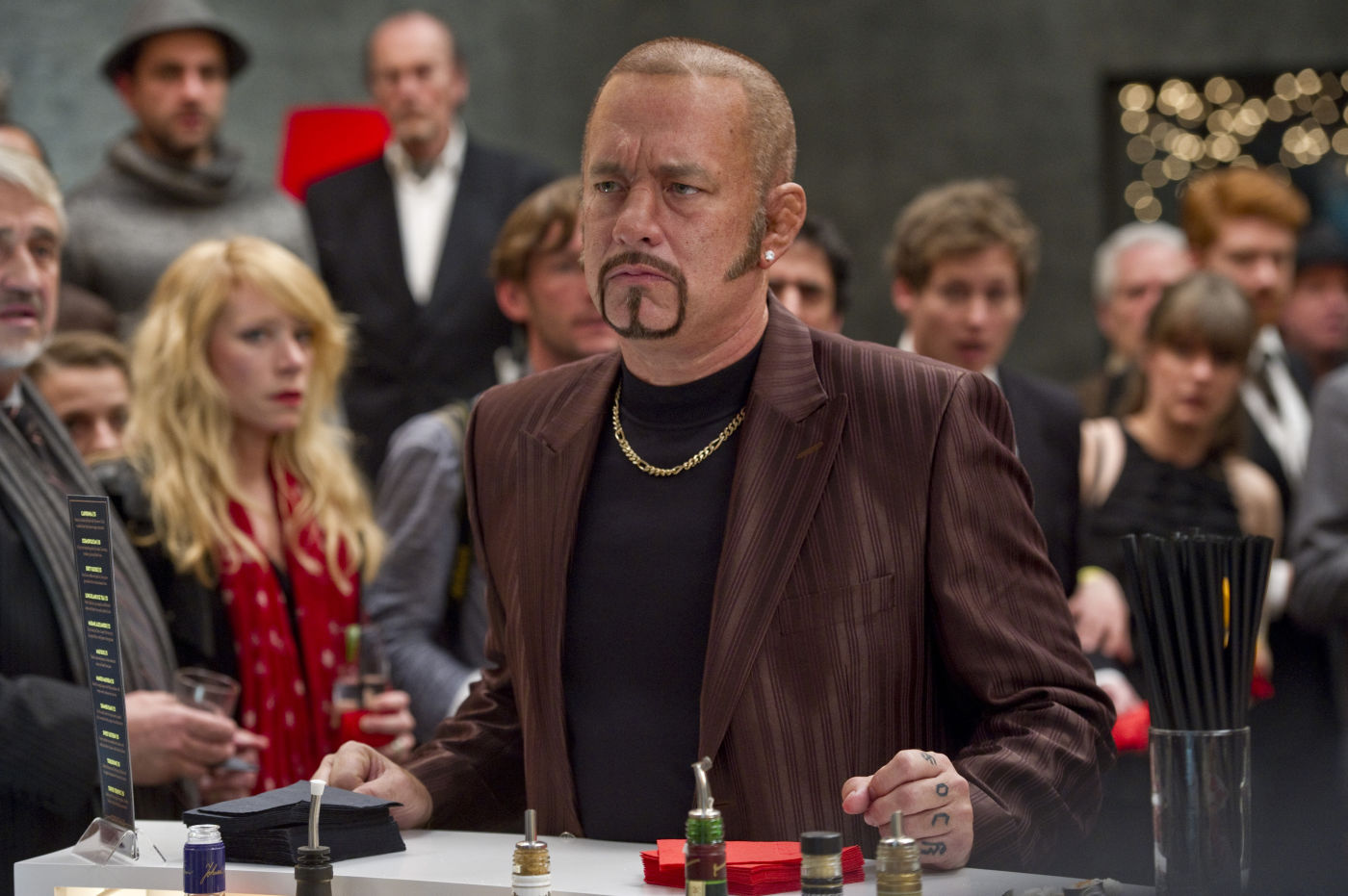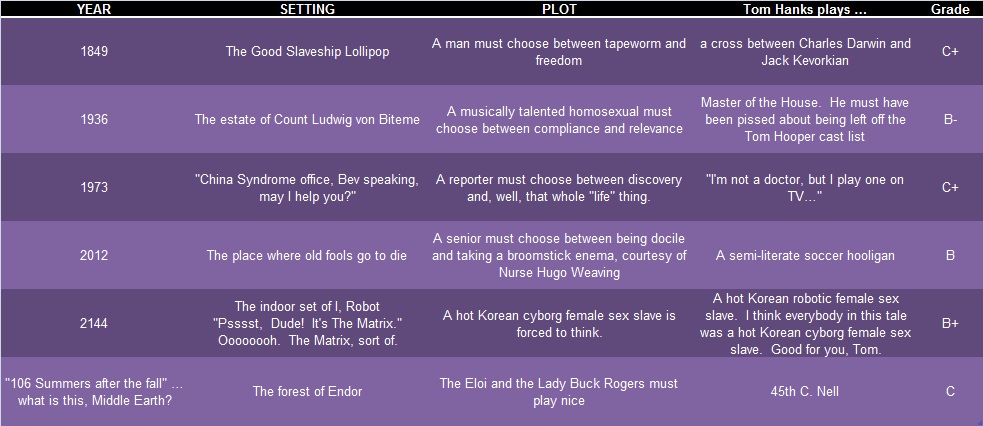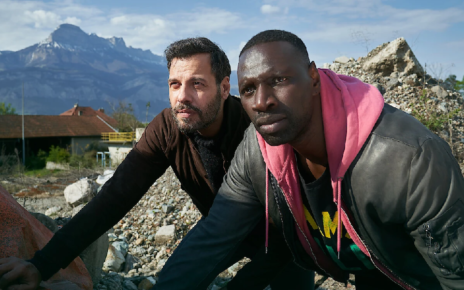You’ll forgive my trepidation; the last film I saw with Atlas in the title was among the worst I’d ever seen. If we Cloud the issue, does that make it work? Well, yes and no.
Cloud Atlas is three hours of six different films jumbled together in six different settings in six different timelines. Your job? Guess the common thread. That is if you’re still awake after hour two. And the kicker — to go with the theme of six, Cloud Atlas has about six different actors who appear in every mini-film.
The title: Cloud Atlas refers to an obscure pice of music written by character 2f in subplots 2h(1) and 4d(3) higlighted in the latter by a character who may or may not have been Tom Hanks as a hippie. They should have indexed and footnoted this movie a lot better; it’s damn confusing following the trails of Jim Sturgess, Hugh Grant and company.
I’m sure Cloud Atlas was trying to answer greater questions of “what is it to be free?” or “how does a spirit grow over multiple generations?” I had two major problems with these themes. One was Cloud Atlas is exceedingly long, the other is the ties from one film to another aren’t terribly solid. For the first hour, I was reminded of both the incomprehensible The Fountain and the all-too-comprehensible Tree of Life. I hated both of these films. Cloud Atlas, thankfully, went in positive directions where those films failed. You can think of the players in these six tales as reincarnations all moving in an effort to change and grow through time. Personally, I found the recycled actor gimmick to be distracting — a handful of talented folks appearing in every timeline with constantly conflicting motivations, well, Cloud Atlas feels like a  high budget acting workshop. Nowhere is this more evident than when Keith David shows in consecutive scenes set centuries apart. There’s a tenuous tie in theme, but little in character, where Keith has gone from hit-man to shaman. It’s not confusing so much as the feeling of actors acting rather than transforming.
high budget acting workshop. Nowhere is this more evident than when Keith David shows in consecutive scenes set centuries apart. There’s a tenuous tie in theme, but little in character, where Keith has gone from hit-man to shaman. It’s not confusing so much as the feeling of actors acting rather than transforming.
The most important of the films is the last, set waaaaay in the future where man is divided into two worlds: one with primitive warring tribes and the other a cultural outtake from Star Trek. This is the tale in which we see Tom Hanks come full circle from loathsome opportunist in 1849 to protector of tribes in whatever-the-Hell-the-year is supposed to be. The dialogue, unfortunately, has been deliberately morphed into some sort of unintentionally comic future-speak specializing in clipped noun repetition. It’s hard to take Hanks  or Halle Berry seriously when they speak of “the bad-bad” and other such gobbledygook. I felt like the culmination of this tale of transformation and growth undermines itself with this adolescent patter. This is a great shame especially as by film #6, Hanks finally gets to be the hero.
or Halle Berry seriously when they speak of “the bad-bad” and other such gobbledygook. I felt like the culmination of this tale of transformation and growth undermines itself with this adolescent patter. This is a great shame especially as by film #6, Hanks finally gets to be the hero.
The bigger shame is this particular overviewing film made me wish the theme had focused more on the story with cross-dressing Hugo Weaving threatening Jim Broadbent with a broomstick up the ass (as mentioned above). Sorry, no payoff, you pervs.
Six stories with Berry and Hanks
An assault by cinematic phalanx
The cast is strong
But three hours long
Is enough to make any end yield thanks
Rated R, 172 Minutes
D: Tom Tykwer, Andy Wachowski, Lana Wachowski
W: Tom Tykwer, Andy Wachowski, Lana Wachowski
Genre: Connect the dots
Type of person most likely to enjoy this film: Connoisseurs of time investment
Type of person least likely to enjoy this film: The impatient




